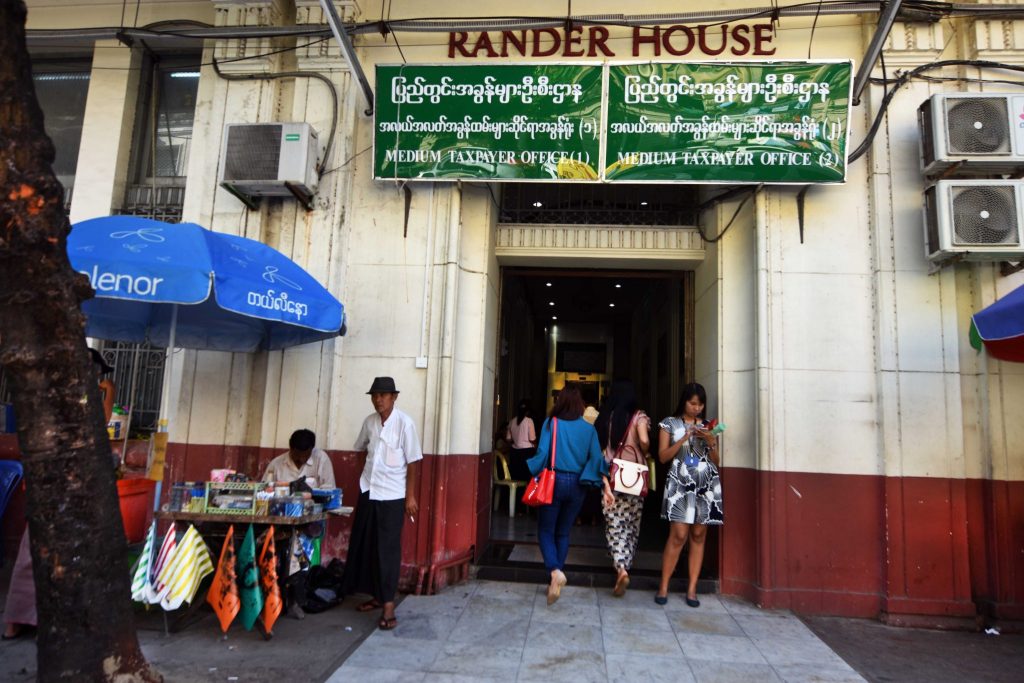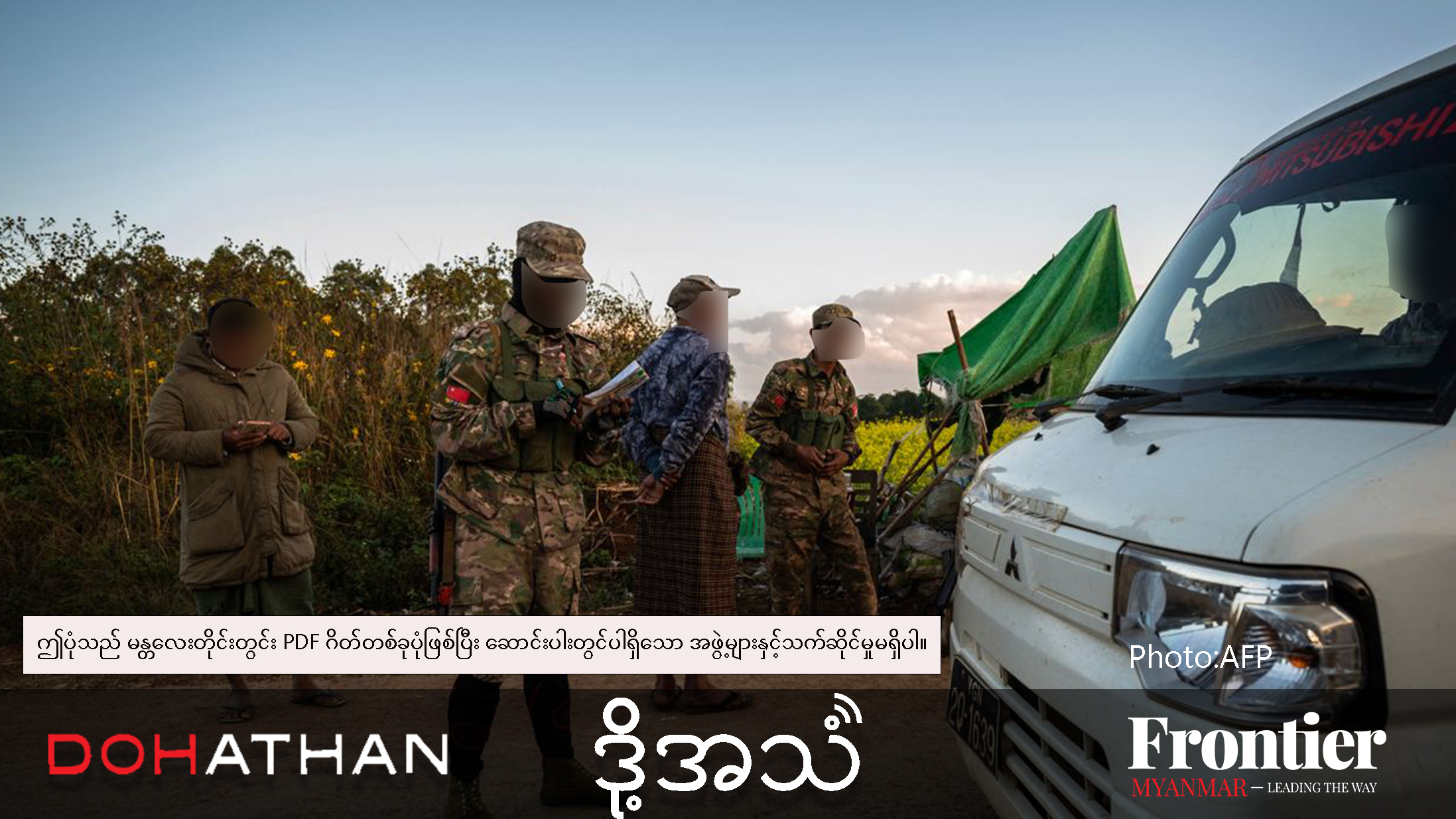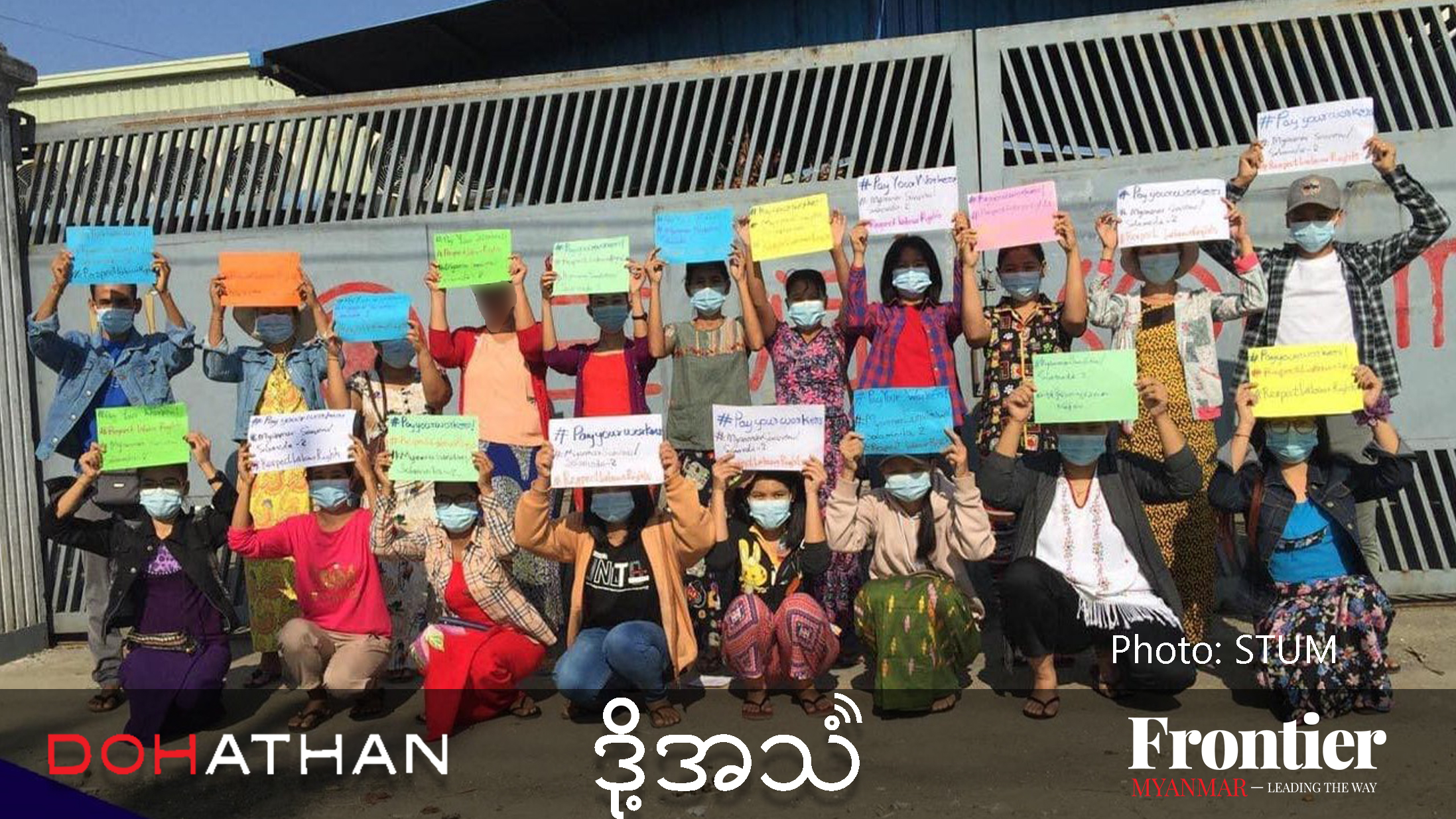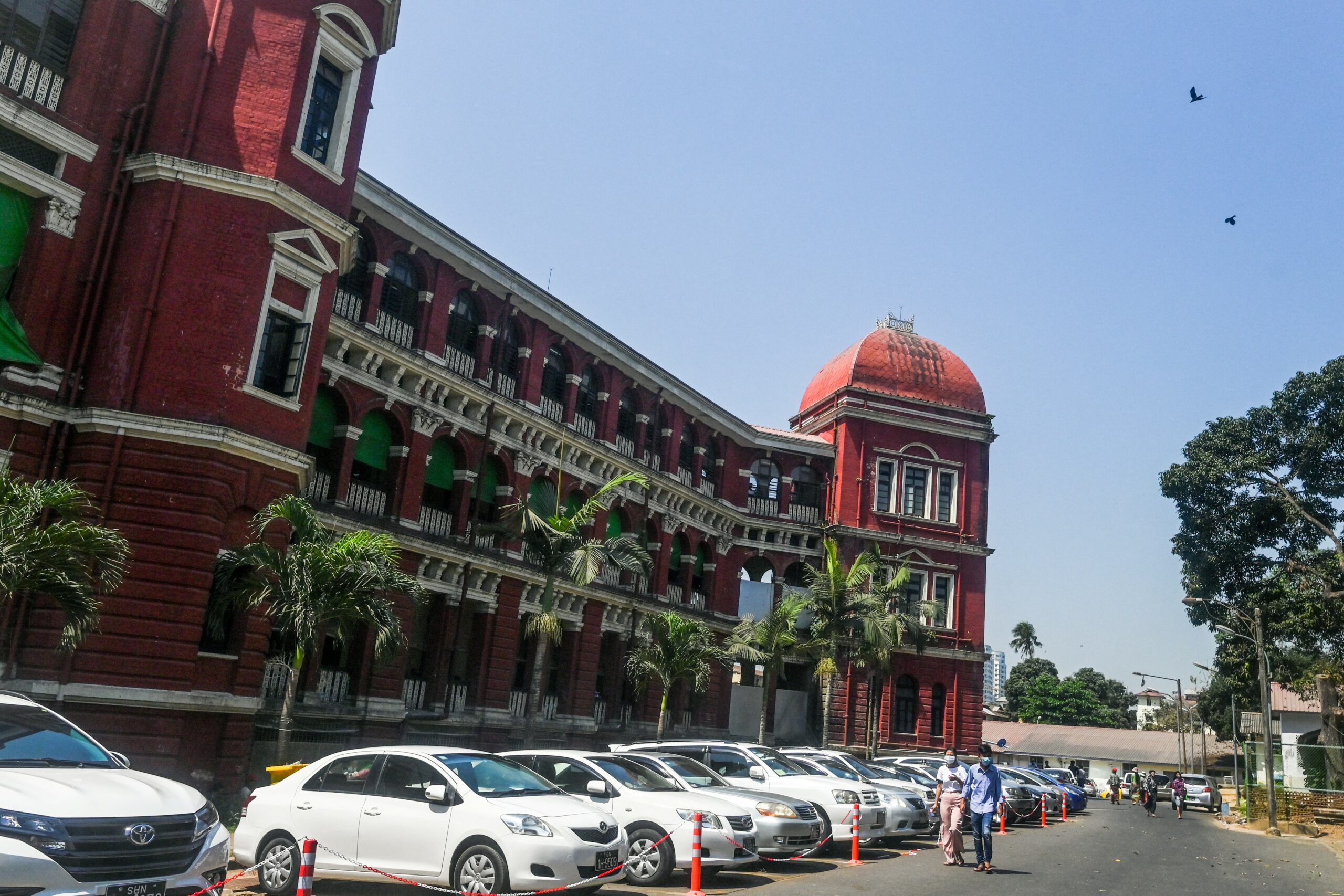A growing boycott campaign is calling on the public to refuse to pay commercial and income tax, and to stop buying lottery tickets, but the government’s tax chief has dismissed its potential impact.
By FRONTIER
Some Myanmar citizens have found a new way to undermine the military regime. As well as a Civil Disobedience Movement that aims to throttle the public sector, and a boycott of products from military-linked companies, many are also refusing to pay taxes.
Even before a group of ousted MPs elect, acting as a parallel government, announced a six-month tax holiday, as anger continued to grow at the February 1 coup, a grassroots campaign emerged encouraging the public to refuse to pay personal income tax or commercial tax in shops and restaurants, and to stop buying lottery tickets, as part of efforts to reduce the junta’s revenues and deny it legitimacy.
The National League for Democracy-led Committee Representing the Pyidaungsu Hluttaw followed the people’s lead, passing an amendment on March 4 to the Union Tax Law suspending taxes until September 30 and ordering staff from government departments to stop collecting taxes. It also warned of legal action if they continued to collect.
The country’s senior tax official has played down the campaign, insisting it would have little impact. He also said Myanmar’s tax office, known as the Internal Revenue Department, will go after businesses and employers who don’t levy taxes correctly on their customers or staff.
“I don’t think we will have a problem if people boycott paying taxes and buying the lottery [tickets],” he said. “Companies will take responsibility. Under the law, they cannot avoid paying taxes, including personal income tax for their staff.”
Commercial tax on goods and services is set at 5 percent in Myanmar’s Union Tax Law. Some items, such as alcohol and cigarettes, are also subject to a Specific Goods Tax ranging from 5pc to 120pc.
Anyone with an income above K400,000 is subject to personal income tax, which ranges from 5pc to 25pc depending on the individual’s income. Companies pay a flat income tax of 25pc on profits.
As well as refusing to pay commercial and personal income tax, some Facebook users have called on the public to boycott other payments that could help fill the military government’s coffers. This includes paying for electricity bills, and not taking part in the popular state lottery, known as Aung Bar Lay, which generates tens of millions of dollars every year for the state.
But so far the most noticeable change has been in the hospitality sector, where commercial tax is usually paid in the form of stamps that businesses buy from the Internal Revenue Department and then affix to a customer’s receipt.
Customer Ko Kaung Myat said that branches in Yangon of a popular restaurant chain were also taking part in the campaign, with staff agreeing not to affix tax stamps to receipts.
“If you don’t want to pay tax, you need to ask the restaurant first,” said Kaung Myat. “The reason is to reduce the revenue of the military. It’s like the CDM.”
Other hospitality businesses that Frontier has visited over the past month have stopped charging commercial tax for all customers, regardless of whether they request it.
Some companies that have continuing to issue stamped receipts have also faced public criticism. South Korean fast-food chain Lotteria faced an online backlash on February 15, after a customer complained on social media that staff at one of its branches refused to allow them to boycott paying commercial tax.
In response to the barrage of online criticism, Lotteria – which entered Myanmar’s then-burgeoning food and beverage market in 2013 and has at least 16 outlets in Yangon – posted on its Myanmar Facebook page the following day that customers no longer needed to pay commercial tax in their restaurants.
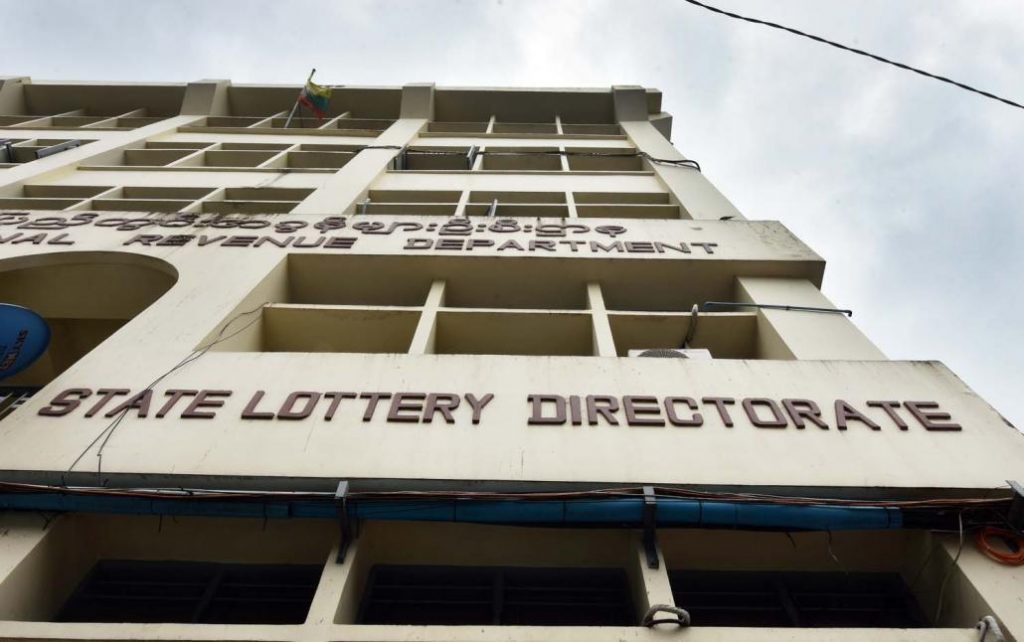
But it’s not just hospitality businesses. Staff at some outlets of City Mart and Ocean Supercenter, part of City Mart Holdings, have accepted customers’ requests not to pay commercial tax when paying for goods.
City Mart Holdings, which has consistently been among the country’s top domestic commercial tax payers, declined to comment when contacted by Frontier.
Meanwhile, a staff member from a non-government organisation, who asked not to be named, said staff at their office were trying to avoid paying income tax.
“All staff requested to finance that we not pay personal income tax. We will try not [to pay] personal income tax,” the NGO worker said. “This is how staff from private companies, and domestic and international NGOs, can join the CDM.”
However, this could potentially leave their employers – who are legally obligated to withhold income tax from salaries and pay it to the tax office in monthly instalments – in hot water.
U Min Htut, director general of the IRD, told Frontier on February 16 that the campaign would have little impact on government revenues, and that business owners must take responsibility if their staff or customers refuse to pay tax.
“If the staff of a company fails to pay tax [to IRD], the owner or financial officer has to pay the personal income taxes of their staff instead,” he said.
The government tax chief said that commercial taxes have been paid in advance by business owners based on their expected tax liability for the year, while lottery tickets were also sold ahead of time through a network of distributors.
However, he declined to comment on the impact on future revenue if businesses stop pre-paying commercial tax, or customers stop buying lottery tickets for a sustained period.
A finance manager from a private company, who also requested anonymity, said that the IRD could seize property if companies fail to pay taxes.
The finance manager said that while commercial tax is often pre-paid, only large businesses pre-pay for a year. Most pay in quarterly installments, and the pre-payments are later reconciled against actual sales. It’s not clear exactly how the campaign might affect the level of tax these companies pay, but it would likely need to be sustained for many months if it was going to have any effect.
But for businesses like restaurants that pay commercial tax by buying tax stickers and attaching them to customers’ receipts, the boycott could conceivably cause a drop in revenue for IRD.
“We bought K30-million worth of tax stickers before the coup,” said one staffer at a Yangon restaurant. “But we won’t be buying any more in future.”


